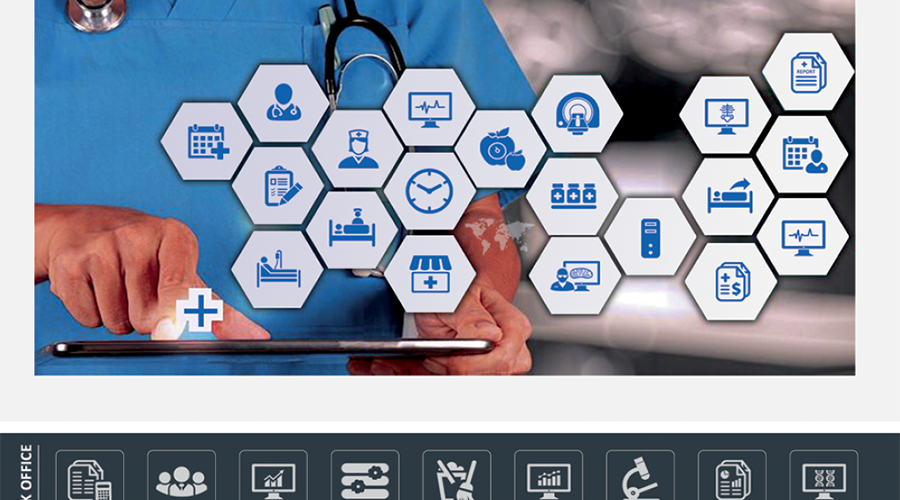
The medical industry is an industry that can never die. This is obvious because as humans, we have very complex anatomies which require constant maintenance and healing. This complexity coupled with the sheer volume of people requiring medical attention at any given time makes a doctor’s job one of the most difficult on the planet. And to top it all off, we haven’t even spoken about the administrative side of things! But, luckily there are ways to make this side of the coin a whole lot cleaner.
As we can all imagine, the amount of medical data that is involved in medical operations can be very large. Managing such data while simultaneously taking steps to ensure smooth functioning is a difficult task. This is where ERP systems come into play. These systems have been specifically designed to tackle such scenarios. But, what exactly is an ERP? Lets take a look.
ERP refers to Enterprise Resource Planning Technology. It is designed to monitor large amounts of data and improve communication channels within an organization. This helps organizations refine their management practices and provides more order. This way employees can perform more efficiently ultimately leading to lesser setbacks and more productivity.
ERP is a very general solution that can be applied to almost any industry. But given the arduous nature of a healthcare organization, such a system could prove to be very effective in this sort of a setting particularly. Let us now see some of the benefits ERP can provide in the healthcare industry.
- Facilitates strategic planning – ERP systems are built to identify flaws and areas that need improvements. When the concerned personnel are provided with such crucial data, they can plan ahead and create strategies to prevent mishaps in the future and possibly even make improvements to the overall system.
- Improved patient care – Since ERP systems provide organizations with storage facilities, data maintenance becomes very easy. This feature can prove to be very useful in the healthcare setting as well, as medical records can easily be maintained and transported between departments, giving doctors easy access to essential data which can consequently improve patient care.
- Better Finance Management – Thanks to the clean software interface and storage facilities of ERP systems, the payment information of patients can be efficiently handled and fatal errors can also be prevented. This can cut cost overheads significantly as more tasks are completed in lesser time and costly mistakes are avoided.
- Facilitates integration – The ERP is a powerful management software. It can quite easily be used to streamline management by bringing all the departments under one clean interface. This way confusion between departments can be avoided which inturn ensures smooth functioning.
- Easy incorporation of new technology – Since the technological landscape is evolving rapidly. The usage of newer, better equipment and devices in the healthcare industry as time progresses is a given. ERP systems helps make these changes within the organization much easier. This is mainly due to the fact that, as mentioned earlier, management becomes more efficient and streamlined.
ERP has definitely helped transform the medical sector. By providing order to organizations that are continually busy, it has no doubt helped improve productivity by a significant margin. So, in sum, if you are someone who handles the administrative side of a healthcare organization but don’t have an ERP system in place, it is high time that you get it set up!
